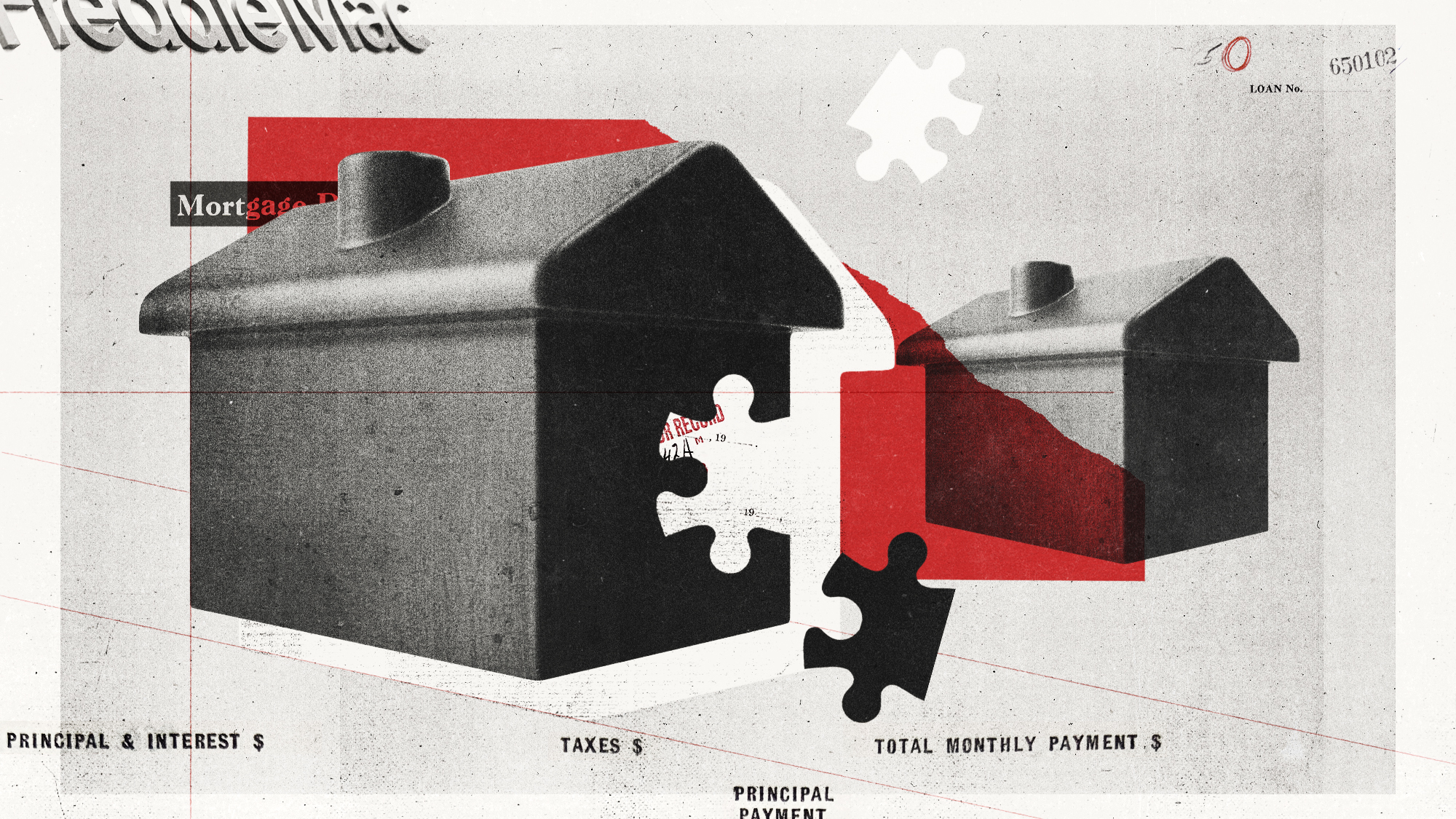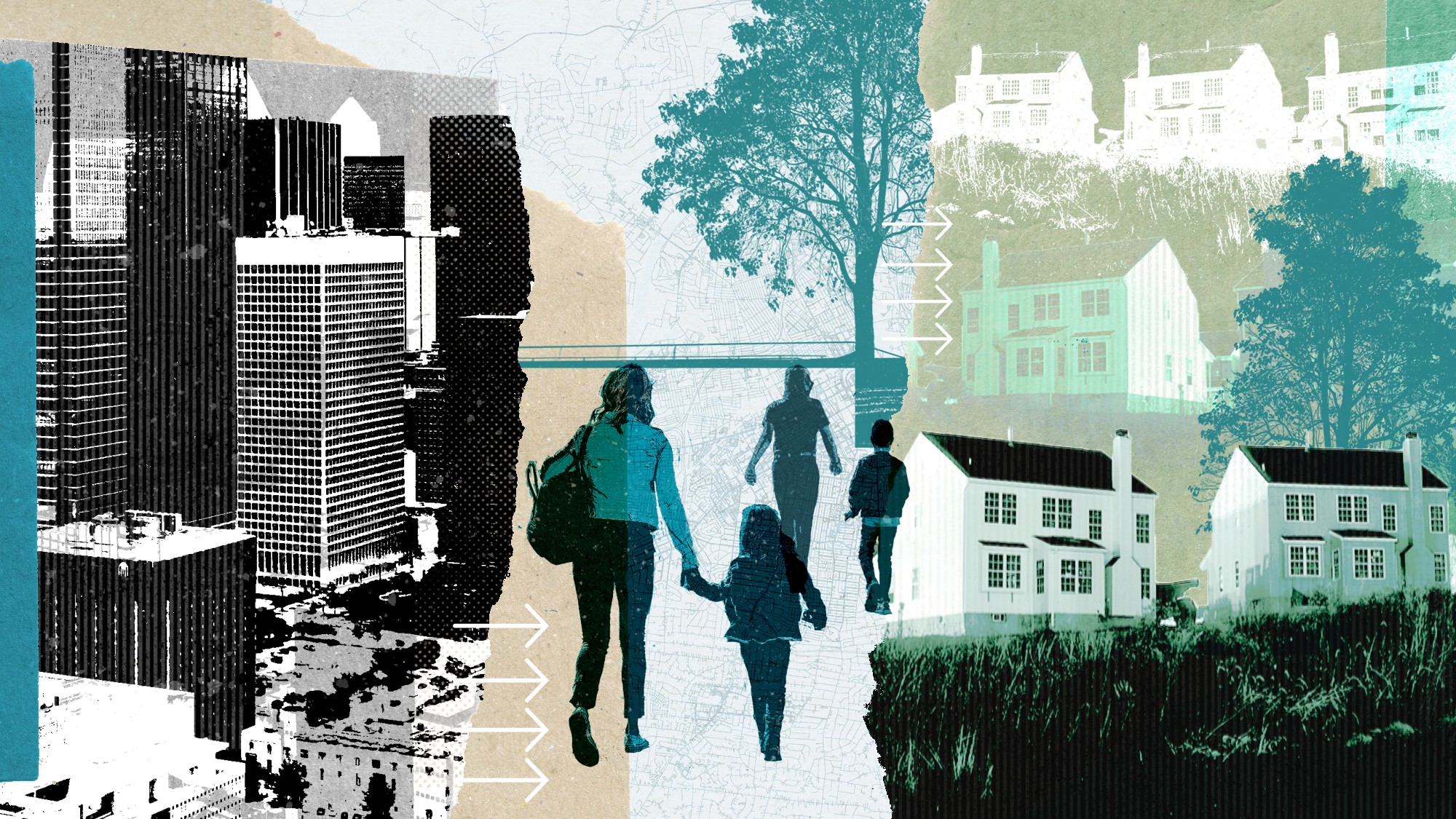Will office-to-residential conversions save America's downtowns?
After the pandemic, cities look to kill two birds with one stone


A free daily email with the biggest news stories of the day – and the best features from TheWeek.com
You are now subscribed
Your newsletter sign-up was successful
Can America's big cities solve two problems with one big idea? Downtowns have been decimated by the post-pandemic rise of hybrid work — and there's also a nationwide shortage of affordable housing. The solution? Turn all those empty offices into apartments. The Associated Press reports that in cities across the country, "office-to-housing conversions are being pursued as a potential lifeline for struggling downtown business districts."
But it's not quite as simple as flipping a switch. Modern office buildings don't have "the plumbing, exterior-facing windows and internal footprint of buildings intended for housing," Stateline reports, making those conversions pretty expensive. That is why cities and states are contemplating "tax incentives and streamlining zoning changes" to spur the renovations. "We have to move fast if we're going to stop our downtowns from crossing the tipping point into urban decay," says one California legislator.
But those big expenses and regulatory hurdles are why "these types of conversions have yet to really pick up steam," Axios reports. Cities like New York, Chicago, Los Angeles, Denver, and Washington D.C. are wrestling with the right mix of enticements for developers — abatements, tax credits, and more — and bureaucratic fixes to make the process easier and quicker. Even with all those changes in the works, though, "saying goodbye to concentrated office districts and 9-to-5 downtowns is probably a process that will play out for decades."
The Week
Escape your echo chamber. Get the facts behind the news, plus analysis from multiple perspectives.

Sign up for The Week's Free Newsletters
From our morning news briefing to a weekly Good News Newsletter, get the best of The Week delivered directly to your inbox.
From our morning news briefing to a weekly Good News Newsletter, get the best of The Week delivered directly to your inbox.
What are the commentators saying?
Local and state governments need to put their money where their mouth is — or else. "There's a cost to waiting for offices to empty out and rents to sink: dreary, abandoned downtowns that are conducive to crime and hostile to visitors," Henry Grabar writes at Slate. But the expense of renovations means developers aren't always chomping at the bit, even if they're losing money on rent that isn't coming in. "It takes almost as much money to convert an old building to residential as it does to build a new one from scratch." Government subsidies are going to be critical. "No one will do it unless the price is right."
"But there's a problem," The Washington Post editorializes. "City leaders aren't doing enough." Commercial buildings in the nation's capital city are now largely vacant, and the situation is similar in other big cities. Renovations were already going to be expensive, but rising interest rates — for the loans that finance such conversions — have made that problem worse. While officials across the country are naturally reluctant to be too generous with incentives they need "to put revitalizing downtowns first." Otherwise, there's a risk in seeing tax values drop and crime rates rise. "One way or another, cities are going to pay."
Beware the hype surrounding office-to-housing conversions, Bill Bubniak and Todd Szymczak write for REJournals, a commercial real estate website. The conversions are not a "one-size-fits-all fix" for the glut of office space, and media coverage can often "fail to communicate that not all conversions succeed." Not every office has the right ingredients to become good — and profitable — housing. "You need two key ingredients to make a conversion recipe work: the right building and the right location." But even with those caveats, "we believe the market is there for finished apartment conversions in quality locations."
What's next?
More work, with a sense of urgency. "We have to figure out how we can get units on the ground and how we can do that in ways that we haven't tried before," one Oregon lawmaker tells Stateline. Various proposals include allowing office-to-residential conversions without requiring zoning changes, waiving impact fees usually associated with development, and fast-track permitting. In Seattle, officials have even turned the trend into a competition, with building owners and architects invited to vie for a $10,000 prize for the most innovative office-to-residential conversion proposal.
A free daily email with the biggest news stories of the day – and the best features from TheWeek.com
The clock is ticking. Marketplace points out that researchers are predicting a "real estate apocalypse" in New York, with the value of office space expected to decline by as much as $49 billion. That will take a real toll on city finances, which have depended on tax revenue generated by those spaces to provide city services. (One bright spot: The former headquarters of the New York Daily News is already being converted.) Conversions must succeed, says one expert, "because I don't know how else we're going to reuse some of these office buildings."
Joel Mathis is a writer with 30 years of newspaper and online journalism experience. His work also regularly appears in National Geographic and The Kansas City Star. His awards include best online commentary at the Online News Association and (twice) at the City and Regional Magazine Association.
-
 The year’s ‘it’ vegetable is a versatile, economical wonder
The year’s ‘it’ vegetable is a versatile, economical wonderthe week recommends How to think about thinking about cabbage
-
 Moltbook: The AI-only social network
Moltbook: The AI-only social networkFeature Bots interact on Moltbook like humans use Reddit
-
 Judge orders Washington slavery exhibit restored
Judge orders Washington slavery exhibit restoredSpeed Read The Trump administration took down displays about slavery at the President’s House Site in Philadelphia
-
 Can Trump make single-family homes affordable by banning big investors?
Can Trump make single-family homes affordable by banning big investors?Talking Points Wall Street takes the blame
-
 Would a 50-year mortgage make home ownership attainable?
Would a 50-year mortgage make home ownership attainable?Today's Big Question Trump critics say the proposal is bad policy
-
 Fannie Mae and Freddie Mac helped trigger the Great Recession. Would an IPO create new dangers?
Fannie Mae and Freddie Mac helped trigger the Great Recession. Would an IPO create new dangers?In the Spotlight It depends on the 'implicit guarantee'
-
 AI is creating a luxury housing renaissance in San Francisco
AI is creating a luxury housing renaissance in San FranciscoUnder the Radar Luxury homes in the city can range from $7 million to above $20 million
-
 Exurbs: America's biggest housing trend you haven't heard of
Exurbs: America's biggest housing trend you haven't heard ofUnder the Radar Northeastern exurbs were the nation's biggest housing markets in 2024
-
 Foreigners in Spain facing a 100% tax on homes as the country battles a housing crisis
Foreigners in Spain facing a 100% tax on homes as the country battles a housing crisisUnder the Radar The goal is to provide 'more housing, better regulation and greater aid,' said Spain's prime minister
-
 Why are home insurance prices going up?
Why are home insurance prices going up?Today's Big Question Climate-driven weather events are raising insurers' costs
-
 Homebuyers are older than ever
Homebuyers are older than everThe Explainer Rising prices and high mortgages have boxed millennials out of the market
